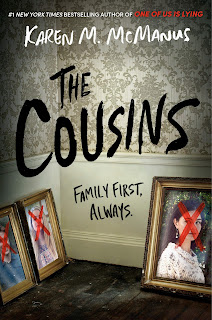Claiming authorship over a piece of writing is mandatory in today's copyright debate, and the 18th century author needed to zealously guard his or her works from unscrupulous publishers. Alexander Pope furiously fought with the publisher Mr. Curll to preserve his authorship over his editions, and within this battle is the examination of signature. Why is the name on the page so important to the 18th century author, and how does this evidence show attitudes towards the print culture of the time? I think the question of the name is more intricate than we think.
The written word allows agency for the author to reach a larger audience. Pope's anger can be seen at the beginning of Duncaid, when they try to remove a fake publisher: "We have ordered the said Pretender, Pseudo-Poet, or Phantom, utterly to vanish, and evaporate out of this work." (Pope 412) By claiming authorship of the text, Pope's pseudonym can claim the work, and also becomes an authority. False editions of Duncaid did circulate, much to Pope's frustration. Not only did he not receive profit from the publisher, he would feel liable if there was some sort of misprint. In this case I believe that the text is also a medium for publishers to exert their own control over the print available to the common people.
The question of authorship is one that cannot always be solved, unfortunately. Authorship means responsibility, and in a world of playing favorites, being responsible for the wrong thing can get a person jailed, as noted when Aphra Behn was nearly jailed for a publication, but avoided it by dying (McDowell).
The misuse of a name can also be noted, as Pope defended John Gay when Mr. Curll published under another close name, Joseph Gay: "He, along with Gay, had been mentioned in the Advertisement; and the translator of Homer resented seeing his name used in a Curll pamphlet" (Halsband 249). In this case the Curll pamphlet lack authority as a text, since the author had never touched it. As a reader myself, I have noted when authors try to "play" with another author's name, and as a consumer I feel cheated when it is not the correct writer. In this way the print culture is influenced by the readers themselves!
The question of authorship is responsibility unfortunately cannot be solved in another set of poetry, Court Poems "The exact circumstances of the publication of the court poems-who arranged it, who wrote the Advertisement, and who earned the profits-is a mass of confusion and contradiction; and nothing can here be added to the previous investigations. (Halsband 239) It would be unwise to attempt to point fingers at authorship, especially in modern publishing.
In Pope's famous censure of Mr. Curll in A Full and True Account of A Horrid And Barbarous Revenge," the nefarious Mr. Curll is poisoned by Mr. Pope after he is accused of "wrongfully ascribing" a "satirical piece , entitled Court Poems." The consequences are severe pain, and Mr. Curll's first action is to right the wrongs of publishing from his career: "Gentlemen, in the first place, I do sincerely pray forgiveness for those indirect methods I have pursued in inventing new titles to old books, putting authors' names to things they never saw..." (126). While the piece is obviously fiction, there are some truth to his words. Curll was known to publish works under different authors' names. While Pope is shaming Curll, he is also making his publishing techniques to be unscrupulous, and that any text that leaves his shop should be questioned. Here the text is used to censor and embarrass.
Perhaps the loudest question in the debate for authorship, is responsibility. If a piece of writing is unreliable and published, the author's other works could be deemed unworthy even by name association. By shaming Curll, Pope draws a line for authorship, which turns into an argument about authenticity. If we can't trust that the author is indeed the author, how can we assume anything is "right" about the text? It takes away credibility, one of the building blocks to becoming a successful author.
Sources Cited
Halsband, Robert. "Pope, Lady Mary, and the Court Poems (1716)." Modern Language Association. 68.1 (1953): 237-250. Print.McDowell, Paula. The Women of Grub Street: Press, Politics, and Gender in the London Literary Marketplace 1678-1730. Oxford: Clarendon Press, 1998. Print.
Pope, Alexander. "A full and true account of a horrid and barbarous revenge by poison: on the body of Mr. Edmund Curll, bookseller; with a faithful copy of his last will and testament. Publish'd by an eye witness." . N.p., n.d. Web. 8 Oct 2013. <http://quod.lib.umich.edu/e/ecco/004809267.0001.000?view=toc>.
Rogers, Pat. The Major Works (Oxford World's Classics). Oxford: Oxford University Press, 2008. Print.


No comments:
Post a Comment